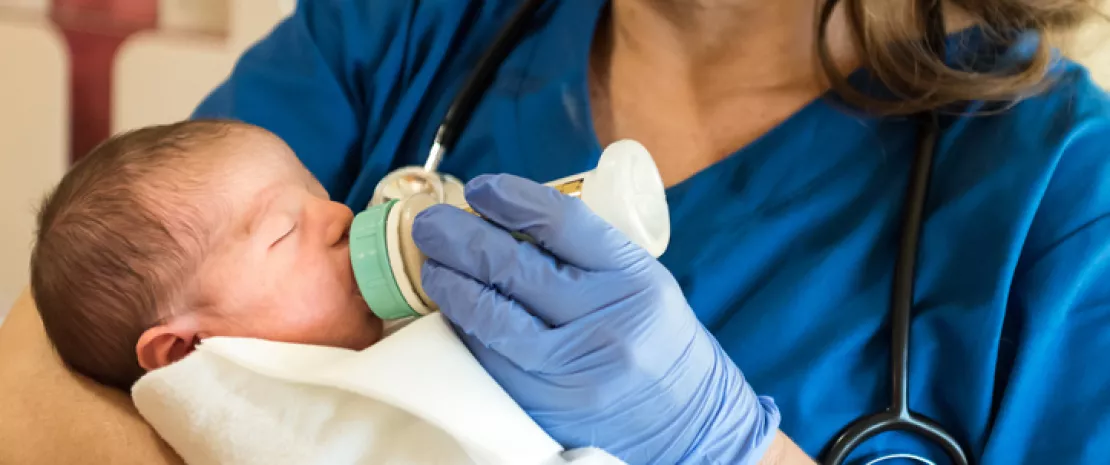Can fecal transplantation restore the microbiota of Caesarean-born infants?
A new study published in Cell shows that the gut microbiota of infants born by Caesarean section can be restored through a fecal microbiota transplant from their mothers. The result is a gut microbiota resembling that of vaginally born infants.
Lay public section
Find here your dedicated section
Sources
This article is based on scientific information

About this article
30% 1 in 3 women are aware that delivery (vaginally or cesarean section) has an impact on the newborn’s gut microbiota
The gut microbiota of infants born by Caesarean section (CS) differs from that of infants born vaginally since CS-born infants are not exposed to maternal microbes during delivery. Some studies report that CS may have short- and long-term consequences for infants’ health, including an increased risk of chronic immune diseases (asthma, allergies, etc.), although this claim remains controversial. A Finnish team has evaluated the efficacy and safety of fecal microbiota transplant (FMT) as a means of restoring the gut microbiota of babies born by CS.
Strict clinical protocol
Stool samples were collected from 17 mothers three weeks before the scheduled CS. A total of 7 women were selected following rigorous screening for pathogens in their stool. Within two hours of birth by CS, each baby received via bottle an FMT from its mother containing approximately 106-107 viable bacterial cells (1 mL of maternal stool diluted in 4 mL of breast milk). The gut microbiota and health status of each infant were evaluated at birth, for two days in the maternity ward, then every week for one month, and finally at three months. The composition of their gut microbiota was analyzed via 16S rRNA sequencing, then compared to that of 82 babies born vaginally or by CS without FMT.
Promising results
FMT did not give rise to any adverse effects or complications in the infants during the study period. The gut microbiota of FMT-treated CS infants and infants born vaginally differed in the first few days, then became similar after one week, but remained quite distinct from that of untreated CS-born infants. FMT appears to correct the bacterial signature of CS by bringing the abundance of Bacteroidales and Bifidobacteriales in line with that of vaginally born infants. In addition, the presence of potential pathogens was lower at one week and three months in FMT-treated CS infants compared to untreated CS-born infants. This first proof-of-concept study shows the safety and potential efficacy of FMT as a means of restoring the gut microbiota of infants born by CS. Larger-scale studies are required, but these results provide additional evidence of the importance of natural microbiota transfer from mother to child during childbirth.




